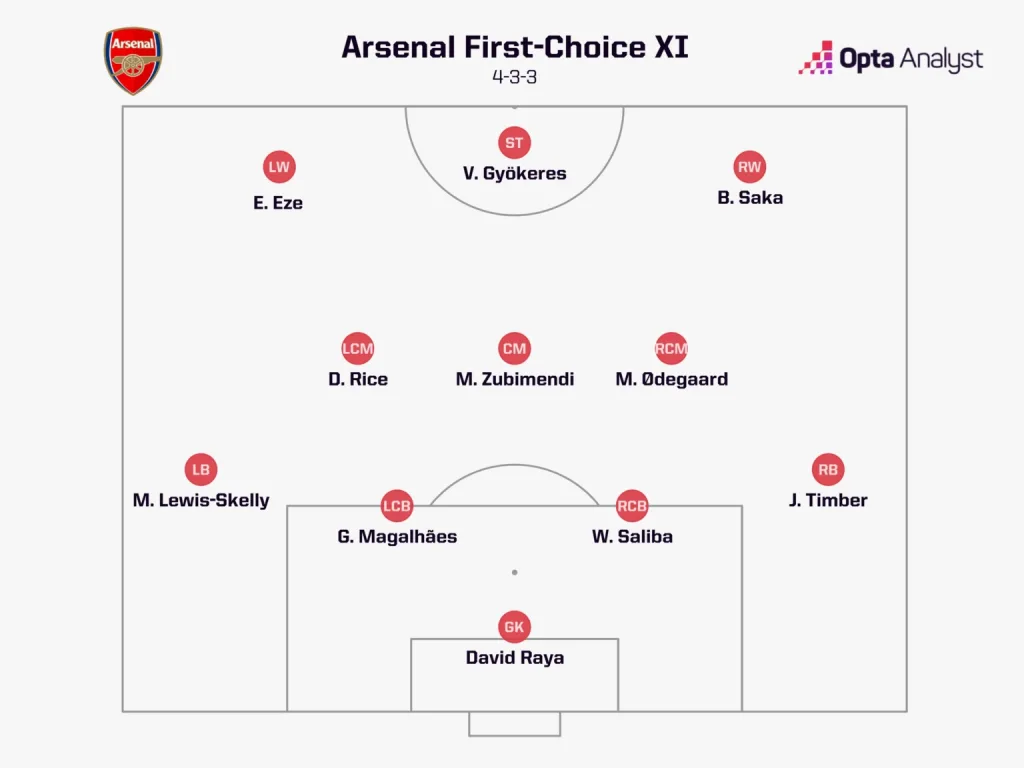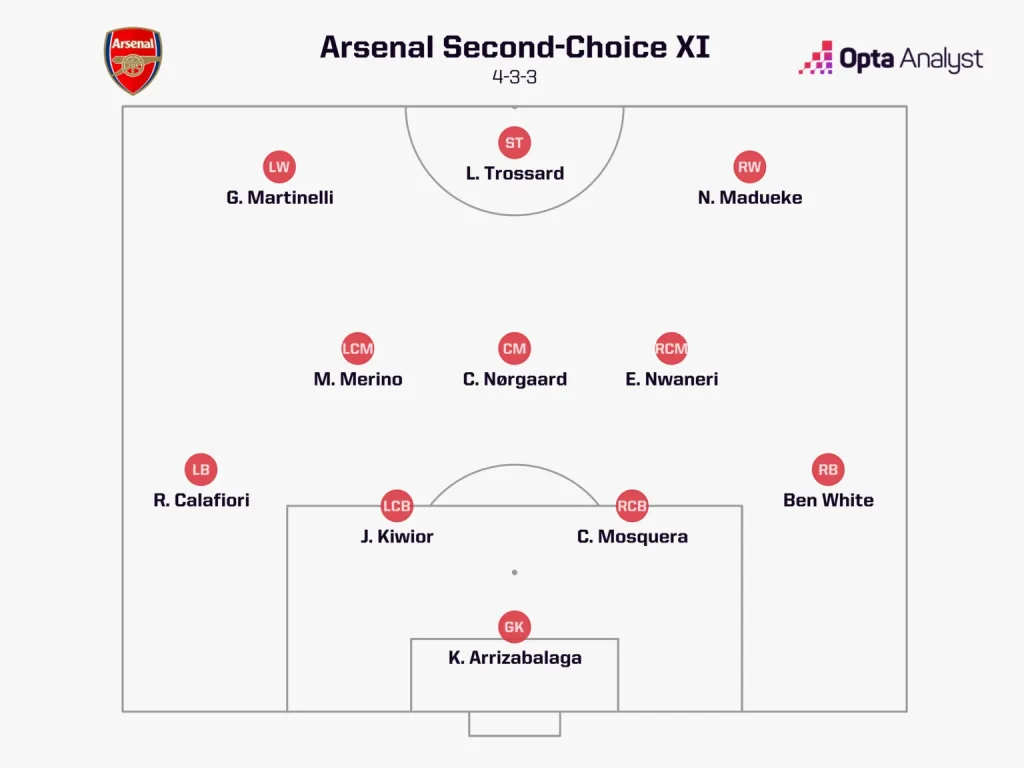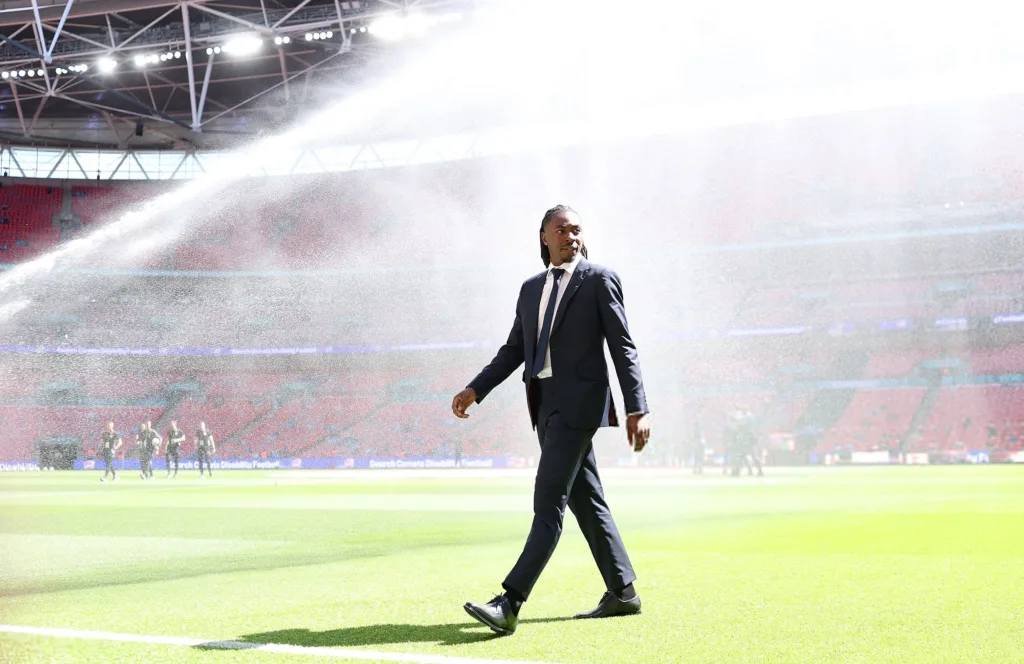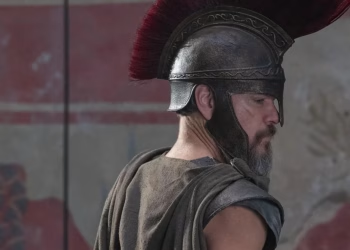Arsenal’s potential acquisition of Eberechi Eze represents more than just another high-profile signing – it could mark the completion of one of the most transformative transfer windows in the club’s recent history. As the Crystal Palace star edges closer to a sensational return to his boyhood club, the question on every Gunners supporter’s mind is whether this £250 million-plus summer rebuild finally provides Mikel Arteta with the squad depth and quality needed to end their 21-year Premier League title drought.
The summer of 2025 is already being hailed as potentially one of Arsenal’s most successful transfer windows in a generation, and Eberechi Eze’s arrival would represent the crown jewel in what has been an extraordinary period of investment. With six major signings already completed and Eze poised to become the seventh, Arsenal have demonstrated unprecedented ambition in backing Arteta’s vision for sustained success.
Table of Contents
The £250 Million Statement: Arsenal’s Seven-Man Revolution
Should Arsenal complete the signing of Eberechi Eze, it will mark their seventh addition of the summer transfer window and push their total outlay past £250 million. This level of investment represents a decisive statement of intent from a club that has backed Mikel Arteta to the hilt. Now, more than ever, it is time for him to deliver the ultimate prize.

The transformation has been comprehensive and strategic, addressing every area where Arsenal have previously fallen short. Viktor Gyökeres has arrived to plug their gaping hole at centre-forward, bringing the clinical finishing they’ve desperately needed. Martín Zubimendi adds technical excellence and press-resistant passing in midfield, while Noni Madueke provides quality depth behind Bukayo Saka.
Experience and leadership have been reinforced through the acquisitions of Kepa Arrizabalaga and Christian Nørgaard, while Cristhian Mosquera represents a high-upside young centre-back who can learn from the league’s best defensive pairing. Each signing has been carefully calculated to address specific weaknesses while enhancing overall squad strength.
Arsenal’s Summer 2025 Transfer Activity
| Player | Previous Club | Position | Role | Transfer Impact |
|---|---|---|---|---|
| Viktor Gyökeres | Sporting CP | Centre-forward | Starting striker | Fills gaping hole in attack |
| Martín Zubimendi | Real Sociedad | Defensive midfielder | Starting No. 6 | Technical, press-resistant passer |
| Noni Madueke | Chelsea | Right winger | Squad depth | Quality backup to Bukayo Saka |
| Kepa Arrizabalaga | Real Madrid | Goalkeeper | Experience | Leadership and competition |
| Christian Nørgaard | Brentford | Midfielder | Squad depth | Experience and leadership |
| Cristhian Mosquera | Valencia | Centre-back | Development | High-upside young defender |
| Eberechi Eze | Crystal Palace | Attacking midfielder/LW | Starting XI | Maverick creator and individuality |
The Eze Factor: Arsenal’s Missing Maverick
Eberechi Eze’s imminent arrival represents arguably the biggest coup of Arsenal’s remarkable summer, made even sweeter by the fact they’ve managed to prise him away from Tottenham’s grasp. The Crystal Palace star brings exactly what Arsenal have been missing: off-the-cuff individuality and maverick creativity that can unlock the tightest defensive systems.
For years, Arsenal have invested heavily in Mikel Arteta’s vision, focusing primarily on robust, physical profiles in defence and midfield. However, this summer marks the first time they’ve truly unleashed their spending power on star quality in attack – the area many believe has been the missing ingredient in their Premier League title push.
Eze’s arrival under new sporting director Andrea Berta, who joined from Atlético Madrid, signals a philosophical shift toward combining tactical discipline with creative flair. His maverick talent stands out as something Arteta’s side have been missing, particularly last season when their attacking play sometimes felt too structured and predictable.
The Depth Revolution: From Weakness to Strength
Despite significant spending in recent seasons, squad depth has long remained Arsenal’s primary problem. In each of the past two campaigns, injuries and loss of form have derailed promising title challenges, exposing the limitations of their rotation options.

After their Champions League semi-final exit to Paris Saint-Germain last season, Arteta admitted this fundamental issue: “We have to arrive in the competition at this stage with the full squad, [everyone] available, in [the] best condition. We haven’t got that.”

This summer’s investment changes everything. Arsenal now boast the firepower to roll out two full starting XIs of genuine quality – a luxury that Manchester City have enjoyed under Pep Guardiola during their era of dominance and one that Arteta has long craved.
Arsenal’s Enhanced Squad Depth Analysis
| Competition Level | Previous Capability | Current Capability | Impact |
|---|---|---|---|
| First XI Quality | Strong | Elite | Title contention |
| Second XI Quality | Significant drop-off | Premier League standard | No quality loss in rotation |
| Injury Coverage | Problematic | Comprehensive | Season-long consistency |
| Multiple Competitions | Struggled | Well-equipped | Deep runs possible |
The strength of Arsenal’s potential ‘second’ team underlines the remarkable depth now at Arteta’s disposal. It’s filled with players who would start for most clubs in the division, and should they be required to step into the first XI, there would be no discernible drop in quality in most positions.
This transformation doesn’t even account for established players like Kai Havertz (currently sidelined with a knee injury) and multiple-time Premier League champions Gabriel Jesus and Oleksandr Zinchenko, who add further depth to an already impressive squad.
Strategic Positioning: Learning from City’s Success
Speaking in pre-season, Arteta acknowledged the necessity of this depth: “We’ve never had the demands that we have this season in terms of the competitions we have to play and the amount of games already that these guys have to play. So [depth] is very much needed, nothing different to any of the top teams in this country.”
The reference to “top teams” clearly alludes to Manchester City’s model, where Guardiola has consistently maintained title-winning standards through rotation and tactical flexibility. Arsenal’s summer spending represents their attempt to match this standard across all positions.
Not only have they added depth, but Arsenal have managed to strengthen their first-choice starting lineup simultaneously. Gyökeres provides the clinical number nine they’ve long craved, Zubimendi slots perfectly into the No. 6 role, while Eze offers an immediate upgrade on the inconsistent output from Gabriel Martinelli and Leandro Trossard on the left flank.
Eze’s Tactical Profile: The Perfect Arteta Player
Though naturally best as a number 10, Eberechi Eze is likely to feature predominantly from the left for Arsenal – an area of the pitch where the attacking midfielder has extensive experience and has proven highly effective.

The reason Eze’s arrival is being greeted with such enthusiasm by Arsenal fans extends beyond tactical considerations. His emotional backstory, returning to the club that released him at 13, adds a compelling narrative dimension to what is already a significant sporting acquisition.
More importantly, Eze represents something Arsenal have desperately needed: genuine unpredictability and creative expression. His philosophy toward football aligns perfectly with what supporters want to see: “Why do I run with the ball? Why do I try things? Why am I creative? The reason is for the people who are watching. It’s what you’re doing to people in the stands and how you can get people off their feet; that’s what football’s about.”
Eze’s Dribbling Excellence: Statistical Dominance
| Dribbling Metrics (2024-25) | Eberechi Eze | Comparison |
|---|---|---|
| Dribbles attempted per 90 | 4.6 | Highest among Palace and Arsenal players |
| Dribbles completed per 90 | 2.3 | Highest among Palace and Arsenal players |
| Exception | Ethan Nwaneri | Showed promise in limited appearances |
The numbers emphatically support Eze’s reputation as Arsenal’s most creative signing. Aside from Ethan Nwaneri, who sparkled in short bursts last campaign, Eze both attempted (4.6) and completed (2.3) more dribbles per 90 minutes in the Premier League last season than any other Palace or Arsenal player.
This statistical dominance in progressive ball-carrying represents exactly the profile Arsenal have been missing in their attacking third.
Chance Creation Through Ball-Carrying: Elite Numbers
Gliding forward with the ball at his feet defines Eberechi Eze’s game, and his chance creation through progressive carries sets him apart from Arsenal’s current options. He produced 40 chances for Palace last season after carrying the ball five metres or further, divided between 25 instances where he carried and shot himself and 15 where he created opportunities for teammates.

This tally was by far the highest of any Palace player, and remarkably, no Arsenal player could eclipse it either, highlighting the creative void Eze will fill.
Ball-Carrying Impact Analysis
| Carry Type | Chances Created | Significance |
|---|---|---|
| Carry and shoot | 25 | Personal goal threat |
| Carry and create | 15 | Team playmaking |
| Total from carries | 40 | Highest among Palace and Arsenal players |
The majority of Eze’s chance-creating carries originated from collecting the ball on the left flank and driving inside – exactly the movement pattern that would complement Arsenal’s tactical structure under Arteta.
Since joining Palace in 2020, just 13 Premier League players rank ahead of Eze for total shots following a ball carry. Only four of them – Jarrod Bowen, Ollie Watkins, Harvey Barnes, and Wilfried Zaha – haven’t played for traditional big six sides during this period. Bukayo Saka remains the only Arsenal player to feature above Eze in this elite company.
Peak Performance: Career-Best Numbers
The 27-year-old concluded 2024-25 with 14 goals and 12 assists across all competitions, producing his most productive season as a Premier League player by a considerable margin. This output even surpassed his best Championship campaign, when he accumulated 22 goal involvements in his final season at QPR during 2019-20.

These numbers become even more impressive when considering the context of Crystal Palace’s playing style. They’ve averaged under 46% possession in each of the last three seasons, meaning Eze has produced elite creative numbers despite limited time on the ball.
Season Performance Comparison
| Season/Competition | Goals | Assists | Total Involvements | Context |
|---|---|---|---|---|
| 2024-25 (All competitions) | 14 | 12 | 26 | Career best in Premier League |
| 2019-20 (Championship/QPR) | – | – | 22 | Previous career high |
| Context factor | – | – | – | Palace <46% possession |
Defensive Work Rate: The Complete Package
Eberechi Eze’s value extends far beyond creative contributions, demonstrating the defensive work rate that aligns perfectly with Arteta’s philosophical demands at Arsenal. His commitment to pressing and defensive duties represents a crucial factor in his suitability for Arsenal’s tactical system.
Among the 50 Premier League players who applied at least 1,200 pressures in the middle and final thirds last season, only five players – Antoine Semenyo, Dominic Solanke, Idrissa Gueye, João Gomes, and Nicolas Jackson – recorded a higher proportion of high-intensity pressures than Eze’s impressive 71.4%.
This statistic demonstrates that despite his creative flair, Eze possesses the tactical discipline and work ethic that Arteta demands from every player in his system.
Possession Adaptability: Ready for Arsenal’s Style
Despite thriving in Palace’s more direct, counter-attacking system, Eberechi Eze has clearly demonstrated his capability to excel in possession-dominant football. His comfort receiving passes in tight spaces and willingness to accept the ball in advanced positions suggest seamless adaptation to Arsenal’s more controlled approach.
His technical security on the ball and ability to create under pressure indicate that the transition from Palace’s 46% possession average to Arsenal’s more ball-dominant style shouldn’t present significant challenges.
The Emotional Narrative: Redemption Story
Beyond tactical and statistical considerations, Eze’s potential return to Arsenal carries profound emotional weight. Having been released by the club at age 13, his journey through QPR and Crystal Palace to become one of the Premier League’s most exciting talents represents a classic redemption story.
This personal history adds extra motivation for both player and club, with Eze returning not just to add squad depth, but potentially to provide the spark and individuality that can finally carry Arsenal to their first Premier League title in 21 years.
Title Expectations: The Ultimate Test
Make no mistake – after this summer’s unprecedented investment, Premier League title success represents the clear expectation rather than mere aspiration. With this squad depth and quality, Arsenal must secure silverware to justify the financial commitment and validate Arteta’s long-term project.
The combination of established quality, promising youth, tactical flexibility, and creative unpredictability through Eze’s addition creates the most complete Arsenal squad in recent memory. Whether this translates to ending their title drought will define both the window’s success and Arteta’s legacy at the club.

For Arsenal supporters, the potential arrival of Eberechi Eze represents more than just another signing – it symbolizes the club’s return to genuine title contention and their commitment to playing football that excites as much as it succeeds.
Read More: Villarreal Complete Club-Record €29.5m Renato Veiga Signing from Chelsea with Sell-On Clause
FAQs
How much has Arsenal spent in their summer 2025 transfer window?
Arsenal’s summer spending will exceed £250 million with Eberechi Eze becoming their seventh signing. Other additions include Viktor Gyökeres (striker), Martín Zubimendi (midfielder), Noni Madueke (winger), Kepa Arrizabalaga (goalkeeper), Christian Nørgaard (midfielder), and Cristhian Mosquera (defender).
What makes Eberechi Eze different from Arsenal’s current attacking options?
Eberechi Eze attempted (4.6) and completed (2.3) more dribbles per 90 than any Palace or Arsenal player last season. He created 40 chances through ball carries (25 carry-and-shoot, 15 carry-and-create), providing the off-the-cuff individuality and maverick creativity Arsenal have been missing.
How good is Eberechi Eze’s defensive work rate for Arsenal’s system?
Eze had 71.4% high-intensity pressures among Premier League players with 1,200+ pressures in middle/final thirds – only 5 players had a higher rate. This defensive commitment aligns perfectly with Mikel Arteta’s philosophy that demands work rate from all players.
What was Eberechi Eze’s best season statistically?
Eze ended 2024-25 with 14 goals and 12 assists in all competitions, making it his most productive Premier League season by far. This even beat his best Championship campaign at QPR (22 goal involvements in 2019-20), achieved despite Palace averaging under 46% possession.
Why is squad depth so important for Arsenal’s title chances?
Arsenal can now field two quality starting XIs after adding depth across all positions. Mikel Arteta admitted after their Champions League semi-final exit that they needed the “full squad available in best condition.” Previous title challenges were derailed by injuries and loss of form due to limited rotation options.








